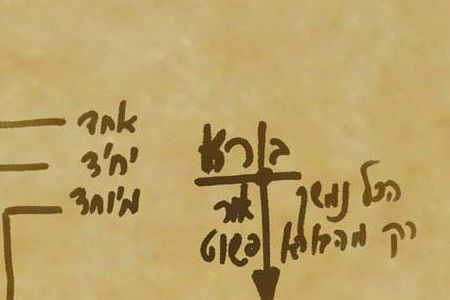Genesis, 25:19-28:9
This Week’s Torah Portion | 4 Nov – 10 Nov, 2018 – 26 Cheshvan – 2 Kislev, 5779
In A Nutshell
The portion, Toldot (These Are the Generations), begins with the wedding of Isaac and Rebecca. After twenty years of infertility, Rebecca conceives and the Creator tells her she will have two sons. The first was Esau, and the second, which was holding unto his brother’s heel, was Jacob. Esau became a hunter, and Jacob studied Torah.
The first confrontation between the twins was over the selling of the birthright. Esau returned empty handed from a hunt, and Jacob offered him lentil stew in return for the birthright. Esau agreed. After some time Esau discovered that Jacob deceived him.
Later in the portion, Isaac digs two wells, both of which are taken by the Philistines. A third well remains in Jacob’s hands, and he calls it Rehovot. Finally, Avimelech and Isaac make a covenant between them.
The second confrontation between the twins happens when their father wished to bless them. Isaac wanted to bless Esau, his firstborn, and Rebecca asked Jacob to dress as Esau in order to receive the blessing of the firstborn. When Esau discovered that Jacob received his blessing, he wanted to kill him, so Rebecca sent Jacob to Haran, to her brother, Lavan.
Commentary by Dr. Michael Laitman
The drama before us is in fact the process of man’s spiritual development. The story deals with man’s most fundamental forces, although it can be, and has been, turned into a novel.
The Creator created the will to receive. That desire is the entirety of the substance of creation. It is possible to use the will to receive for one’s own favor, or in favor of others. In fact, the whole of creation is prone to using the desire in favor of others, as it is written, “love your neighbor as yourself; it is a great rule in the Torah.” [1] This is the law of the whole of reality, the whole of Nature.
On the one hand we must use the will to receive and satisfy it however we can. On the other hand, the act of satisfying, in which we draw everything to ourselves, must be for the benefit of others. This seems contradictory. Using the ego, the will to receive, must be solely in a direction that is good for everyone. We cannot understand that contradiction, which is why we cannot understand the Torah, making its meaning hidden from us.
The portion seemingly explains it by saying that although Abraham loved Ishmael, he sent him away. Isaac, who loved Esau—the will to receive, all the substance of creation—acted similarly, though Esau is our entire nature, which we need and use in everything we do in life.
Continue reading “Toldot (These Are the Generations) Parsha – Weekly Torah Portion”

